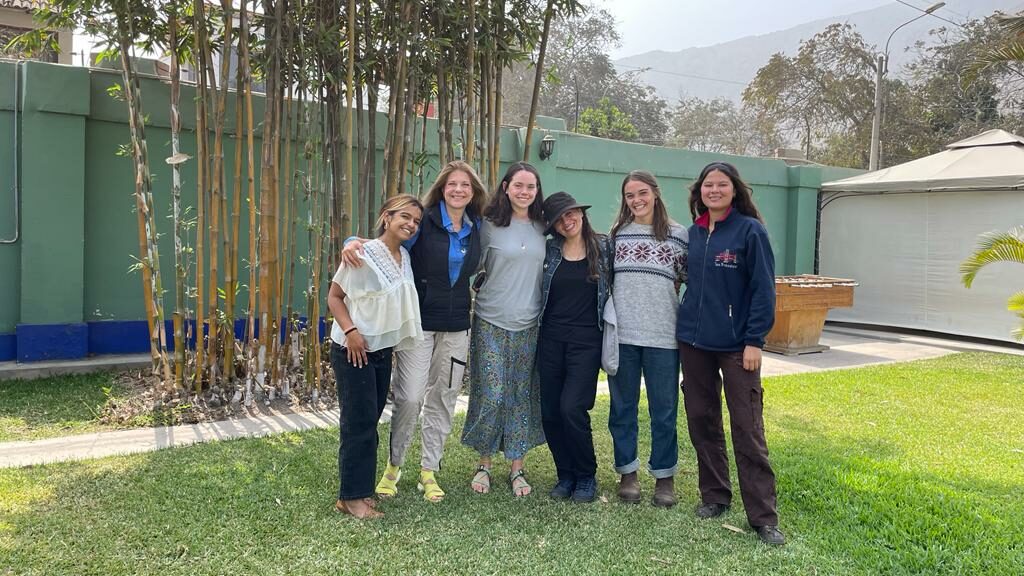
So, what is Lucie actually doing these days?
I’m glad you asked. Right now, I am in what Peace Corps calls “Pre-Service Training” or PST. It’s basically 11 weeks of intensive, Monday-Friday, 8am-5pm (and most Saturdays for a couple hours), training. My sessions are split into different parts, which you’ll find below:
Health
This is the bulk of my training, and is focused on maternal, baby, and adolescent health. We have sessions on exclusive breast-feeding (for the first 6 months of life), complimentary feeding (incorporation of food between 6mos-2 years), anemia/malnutrition rates and the urban v. rural health disparities, adolescent sexual and reproductive health, understanding the Ministry of Health (MINSA), and more.

Once in my permanent site, I will work closely with Agentes Comunitarias, who are volunteers in the community that conduct home visits with mothers of babies between 3 months and 1 year. Agentes Comunitarias exist in communities across the country, though the initiative has taken a major hit since COVID. As PCVs, part of our work is to try and build Agentes back up. We’ll work alongside them to inform mothers about exclusive breastfeeding, and when/how to incorporate normal food into the baby’s diet. This includes educative and demonstrative sessions on nutrition, ensuring they are utilizing the free iron supplements provided by the Peruvian government, ensuring their baby’s vaccine schedule is up to date, and more.
There’s so much that I didn’t know, and it has been so exciting to explore this realm of health – like how babies have a natural iron storage from birth that lasts 6 months, and that breast milk provides almost no iron, which is where the importance of complimentary feeding comes in. At 6 months, babies get tested for anemia, and if they come out positive, Agentes provide more visits. In general, a mother will receive 1-3 visitas domiciliarias (home visits) per month, and I will accompany a lot of them.
Language & Culture
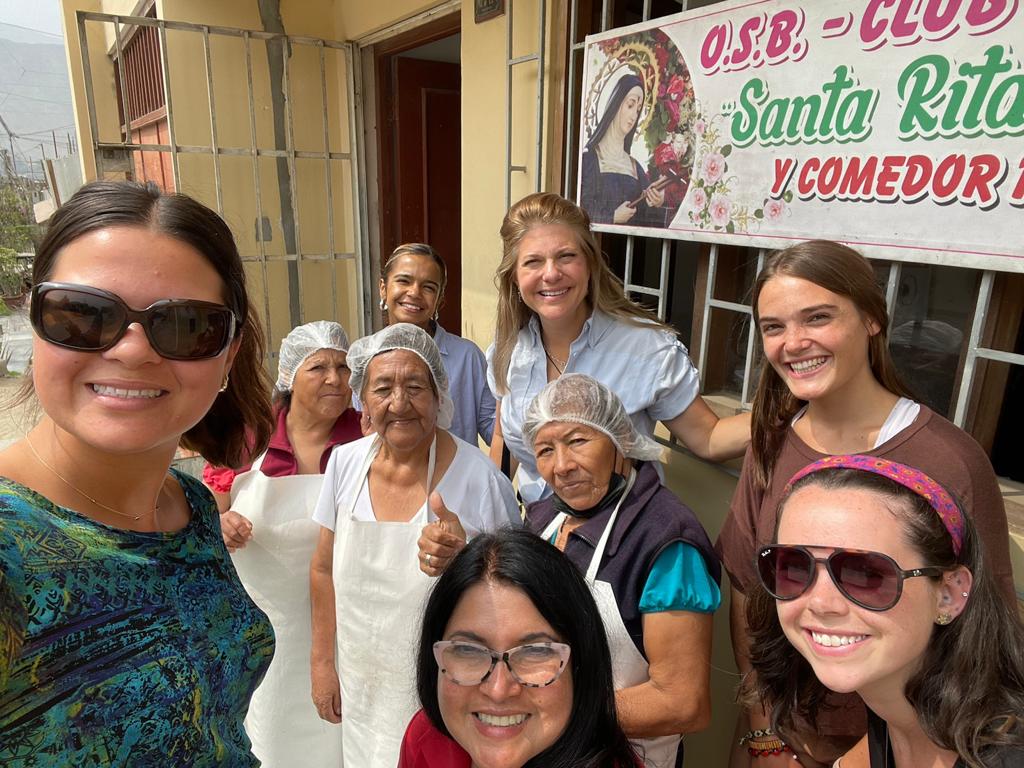
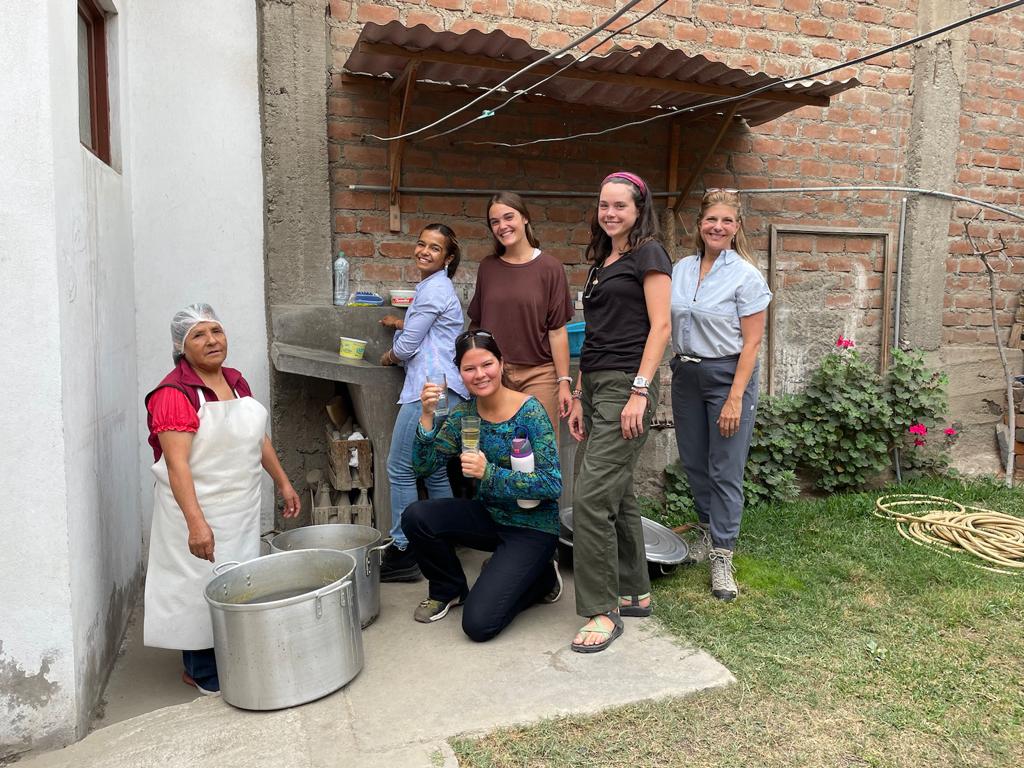
Every day, I have anywhere from 2-4 hours of language, and other sessions on all things Peru: food, lifestyle, norms, you name it. In addition to the fact that my language class only has 5 students – they split us up based on sector (there are also Youth Development volunteers in the cohort), as well as skill level (I came in as Intermediate-Mid) – the sessions are conversation-heavy rather than grammar-heavy, all of which has made the experience more effective than any high school or college course.
We even spend some classes “in the field” to practice what we’ve learned. Two weeks ago, we spent an hour interviewing an Actora Social, a woman who conducts home visits with 15 mothers in the area to check in on anemic babies. Last week, we spent our class at a local comedor, basically a soup kitchen, where we chatted with the women who had worked there for 30+ years and helped clean the dishes. We also spent a day guiding a class of 15 year-olds through games and conversations about American and Peruvian culture.
Everything we do is so relevant, even our units are focused on Peace Corps or maternal/youth health.
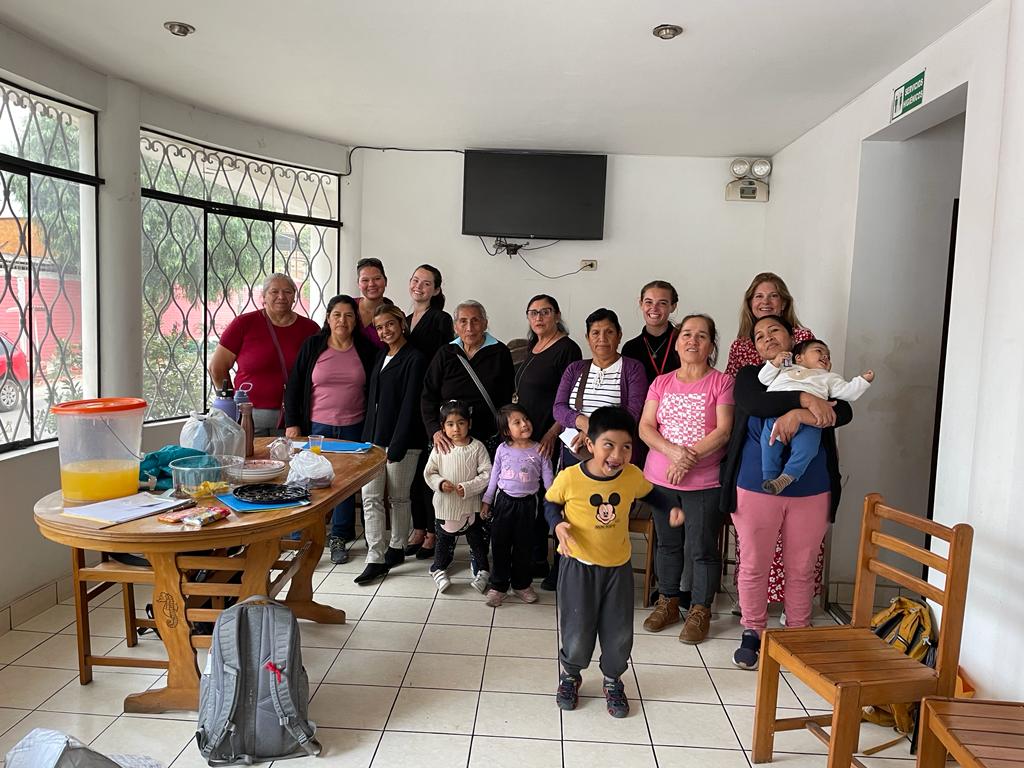
Core, Safety & Security, Medical
Tuesdays are the non-health, non-language days. Instead, they are spent understanding the roles of a PCV in service, Peace Corps’ people-focused approach to development, and the logistics of monitoring & evaluating our projects in the field.
In terms of Safety & Security, we discuss how to not be an easy target, basically using common sense and mitigating your risk, whether it’s walking the streets of Lima or the paths of our permanent site.
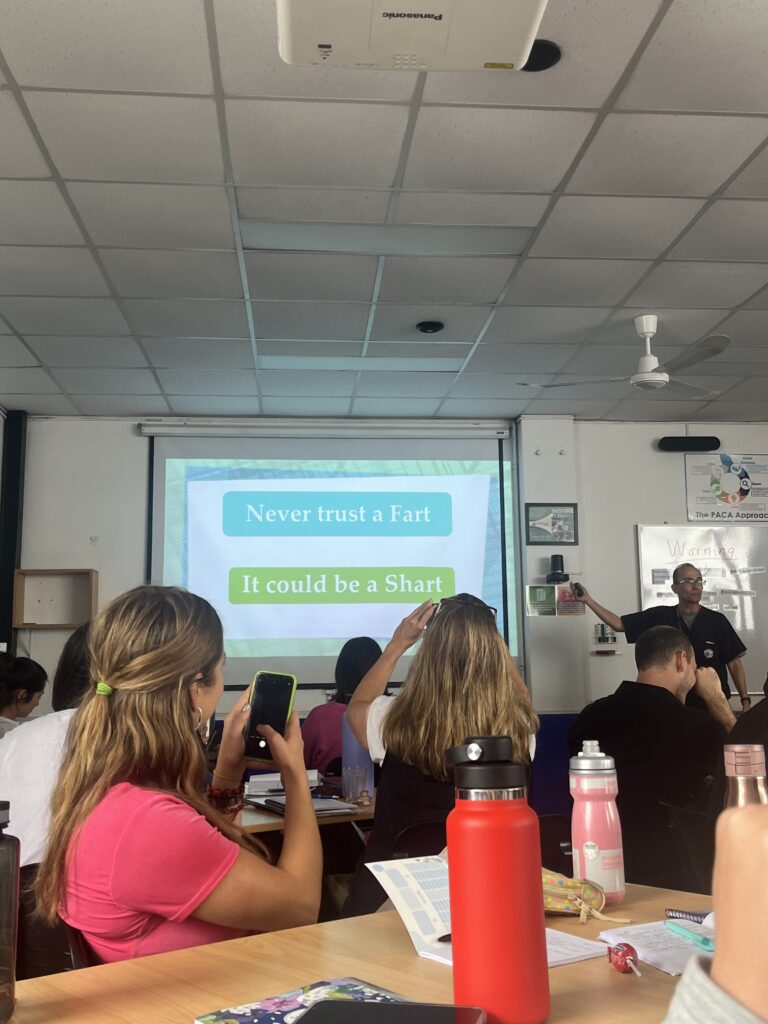
And the best part of these days …. MEDICAL. First, our medical team is amazing, and hilarious. We talk about how to triage an emergency situation, what to do about chronic diarrhea, at what point we should call our medical officers in the middle of the night, and the odds that one of us will get bit by a dog in the next two years. My favorite quote … “Don’t trust a fart. It could be a shart.” Yup.
(see photo to the left)
Immersion Days
I spend the first half of every Friday in Huascata, the neighborhood where I live (about 15 minutes drive from our training center). We’ve visited the health center, which is a small building that has general medicine, an obstetrician, and a dentist. During our first visit, we watched the doctor take stitches out of a 13 year-old’s forehead, where I got to chat with the grandmother as it all went down, telling her about Peace Corps, asking about her granddaughter, etc. We also met with the obstetrician, who talked us through her strategies for building the confidence of young girls and boys, and what it’s like dealing with more conservative parents when it comes to sexual and reproductive health.
On another day, we visited the local escuela secundaria (12-16 year olds), and sat in on a tutoría class. Tutoría here is standard across the country, and is kind of like homeroom 3x/week, where kids talk about anything from emotional skills, to culture, to health education. In my permanent site, I’ll also be working a lot in the tutoría sessions at the local colegio (high school), where I’ll co-lead sessions on sexual education, mental health, and self-confidence.
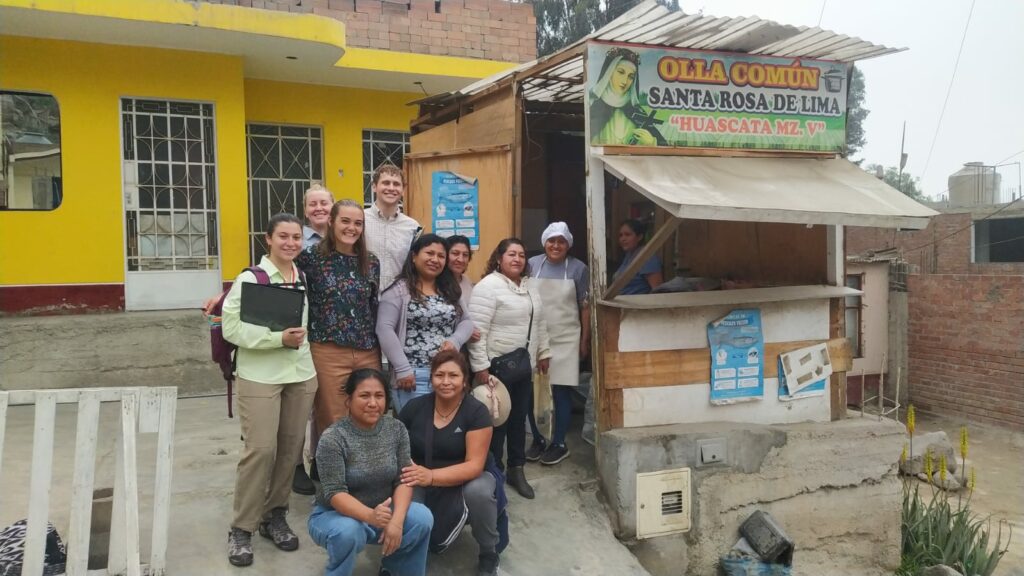
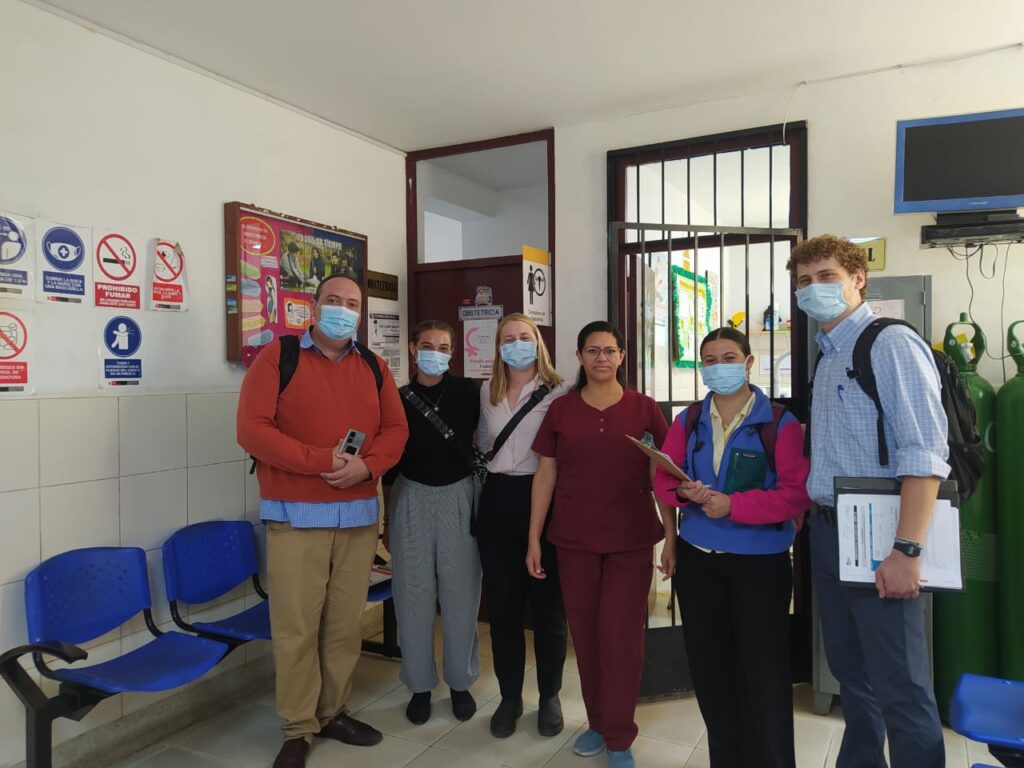
(obstetrician in the middle)
If you want to learn about the big events coming up in PST, keep reading!
We just finished Week 3, and for Week 5, I’ll go into Field-Based Training, or FBT. Instead of spending that week with my host family in Lima, I’ll head to Ancash, a mountainous Andean region to the north. While there, the other health volunteers and I will get a grasp on what our jobs will truly be, as we’ll be visiting currently serving health volunteers.
On October 31, Halloween, I’ll find out my permanent site. As of now, I have no idea where I’ll be placed, seriously not one clue. There are some folks in the cohort that have major preferences, but I really can’t see myself in one place over another. In the end, for me, it’s the people that make the place, not the place itself. So, I think I’ll just leave it in fate’s hands to choose for me. 5 days after I find out, I head to my site for 2 weeks of Site Exploration (Weeks 8 and 9). They really throw us right in there. Apparently those 2 weeks are packed with activities, which is good news, as I’m sure it’ll be a semi freak out moment. I’ll meet my host family and live with them for those 2 weeks … a trial run, if you will.
After those 2 weeks are up, I’ll have 2 weeks back in Lima for training before I’m off to my site for good. That’s 2 final weeks with the cohort before we part ways. Things are happening!!!!
2 thoughts on “So, what is Lucie actually doing these days?”
As always, so excited for you!
Lu-
The weeks are flying! So proud of you. I bet your brain is swimming in facts and thoughts. I love it! I imagine the conversations with kids about sexual/reproductive health will be very interesting and necessary. In truth, these conversations should happen more in the US too. I am excited to see where you end up for your assignment. I know you don’t care about location, but I’d like to come visit and I think we both know that I do better in cool, dry climes. Also, Week 5… Andy says the mountain in the Ancash region are spectacular. Photos, pleeze. Keep the blogs coming!